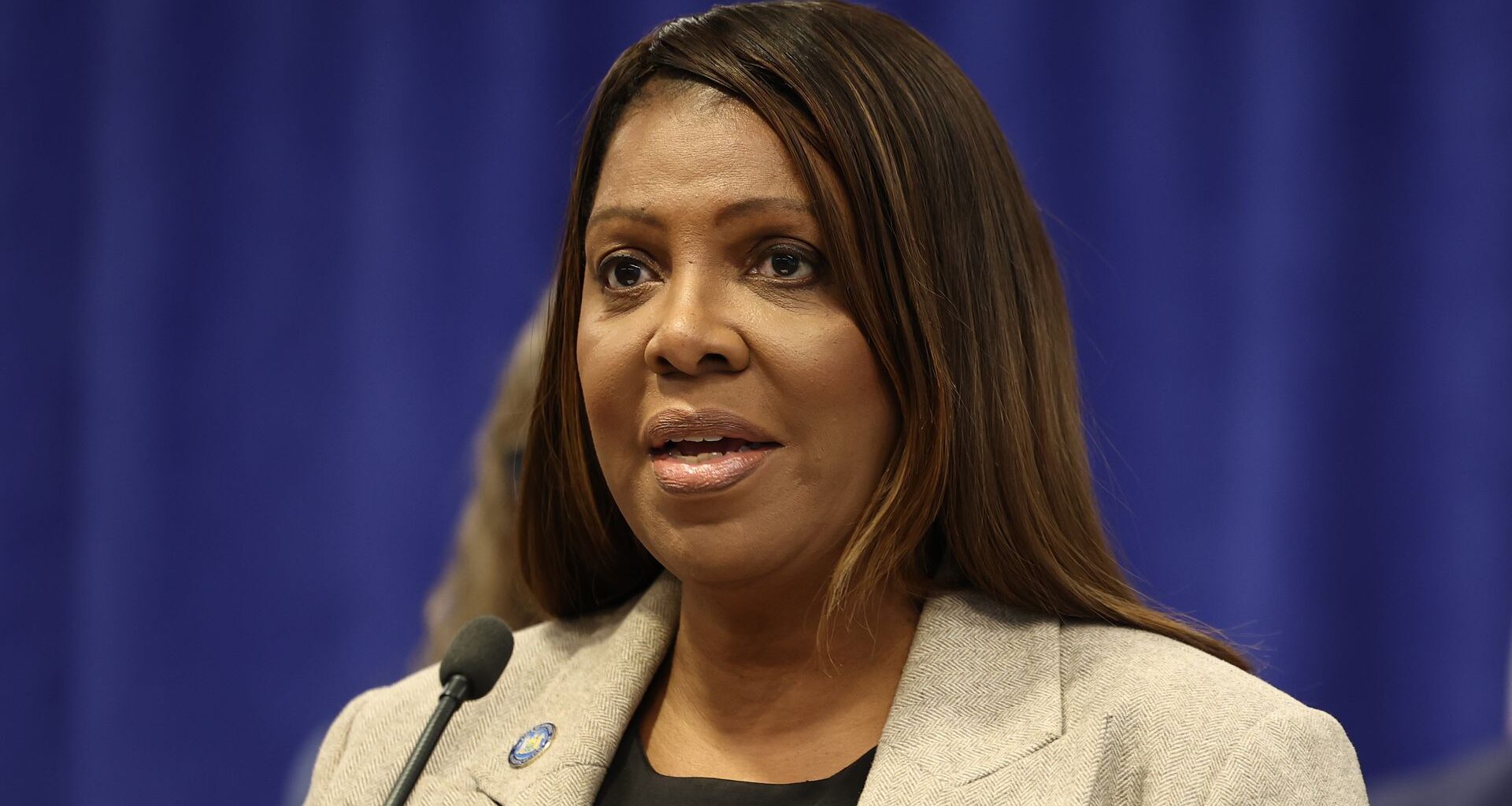New York Attorney General Letitia James has targeted some of the nation’s largest banks, accusing them of letting consumers fall victim to fraud. Her office filed a lawsuit against Early Warning Services, the company behind the popular payment app Zelle, citing the absence of key security features.
Attorney general targets Zelle over alleged fraud
James said the lawsuit follows an investigation by the attorney general’s office that found scammers stole more than $1 billion from users between 2017 and 2023 through the platform.

Download the SAN app today to stay up-to-date with Unbiased. Straight Facts™.
Point phone camera here
“No one should be left to fend for themselves after falling victim to a scam,” said James. “I look forward to getting justice for the New Yorkers who suffered because of Zelle’s security failures.”
Rise of payment apps disrupts traditional banking
The court documents say apps like Venmo, PayPal and Cash App’s popularity led banks to face a threat to their long-standing control over how Americans move money. Traditionally, consumers relied on their banks for nearly all non-cash transfers, using checks, online payments or in-person transactions. However, these third-party apps offered speed and convenience that traditional banking just couldn’t match.
To compete, several major banks created Early Warning Services and launched Zelle in 2017. JPMorgan Chase, Capital One, Bank of America and Wells Fargo own EWS. Zelle markets itself as a quick way to move money between people you know and trust, no matter where they bank. Once a payment is sent to someone already enrolled, it cannot be canceled. The money typically lands in their account within minutes.
The company advises users to confirm their contact details before sending funds, to avoid offers that seem too good to be true and to note that Zelle does not provide purchase protection for authorized transactions. Instead of sharing sensitive account details, payments can be made using just an email address or a U.S. mobile number tied to a bank account.
The app promised instant transfers with no fees and minimal setup, often embedded directly in users’ bank apps. Zelle’s marketing highlighted safety, telling users their money was “backed by banks” and could be sent “straight from your banking app.”
James argues Zelle’s simplicity created major vulnerabilities. Signing up required only an email or phone number, verification was minimal, and funds were available immediately. Fraudsters quickly exploited the system, using fake accounts, phishing schemes and takeover scams to drain accounts before victims could react.
A Zelle spokesperson refuted the claims in a statement to Straight Arrow News, calling it a publicity move and a repeat of the earlier CFPB lawsuit.
“The Attorney General wants to hand criminals a blueprint for guaranteed payouts with no consequences, opening the floodgates to more scams, not less. That’s bad policy and puts consumers at greater risk,” said a Zelle spokesperson. “This is nothing more than a copycat of the Consumer Financial Protection Bureau lawsuit that was dismissed in March. Despite the Attorney General’s assertions, they did not conduct an investigation of Zelle.”
They said if the attorney general investigated the platform, they would have found over 99.95% of Zelle transactions happen without any fraud reports — a rate they say is among the best in the industry.
Delayed action allowed alleged fraud to spread
By 2019, fraud had become widespread. Although Early Warning had proposed basic anti-fraud measures that year, James’ office said the company delayed meaningful implementation and failed to enforce even the limited rules that existed. Over the next four years, millions of users lost hundreds of millions of dollars, while Early Warning and its bank owners profited from Zelle’s growth.
It wasn’t until 2023, after federal oversight and more than a billion dollars in reported consumer losses, that Zelle adopted safeguards. The measures cut fraud dramatically, but they could not undo the losses consumers had already suffered.
In 2024, the Consumer Financial Protection Bureau sued Zelle, but the case was dropped after a change in the presidential administration. With her lawsuit, James is seeking restitution for affected New Yorkers and a court order requiring Zelle to implement anti-fraud measures to protect all users.
Consumer Reports said the CFPB’s decision to drop its lawsuit against the banks behind Zelle signals a reduced focus on consumer protection. The group warned this could limit relief for fraud victims.
Cole Lauterbach (Managing Editor),
Lawrence Banton (Digital Producer),
and Zachary Hill (Video Editor)
contributed to this report.
